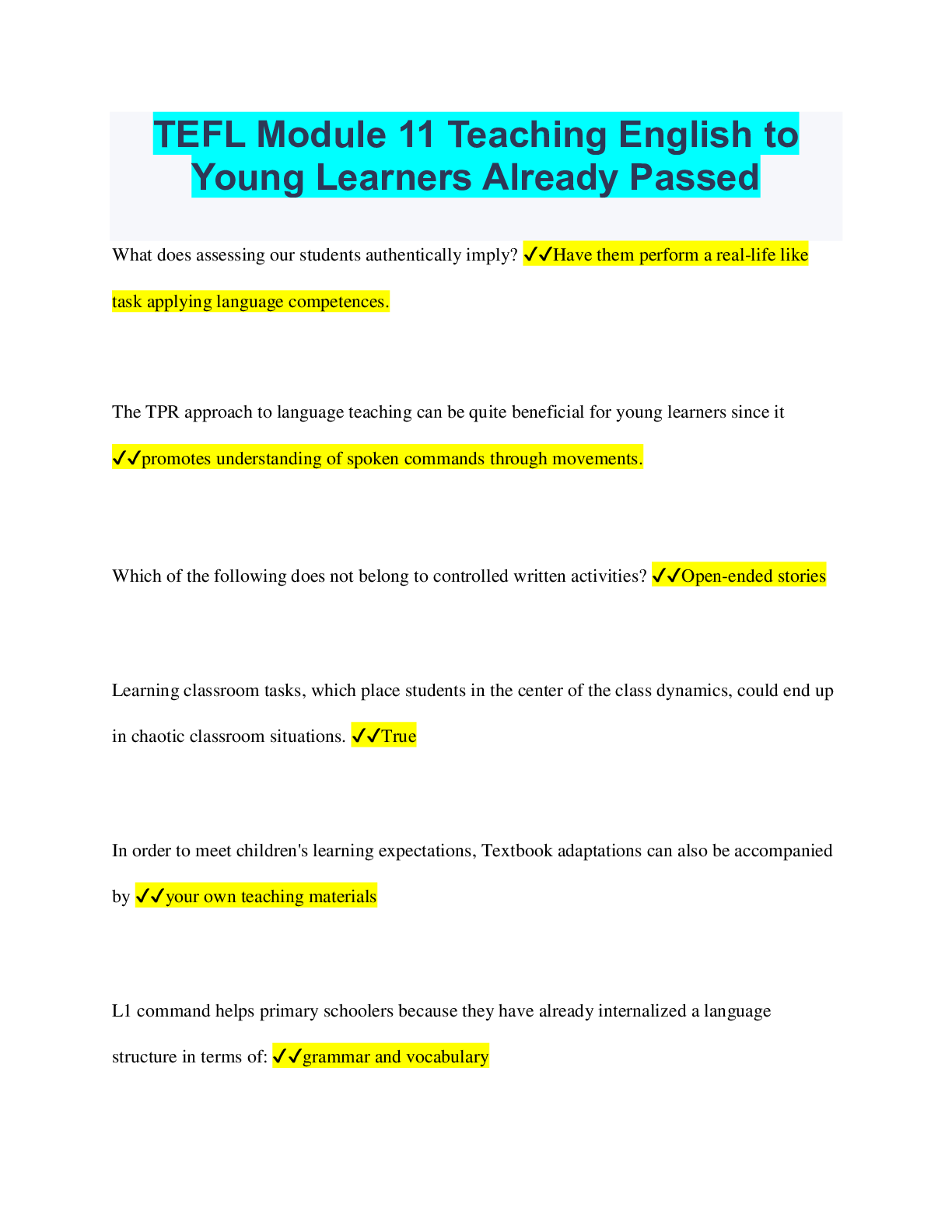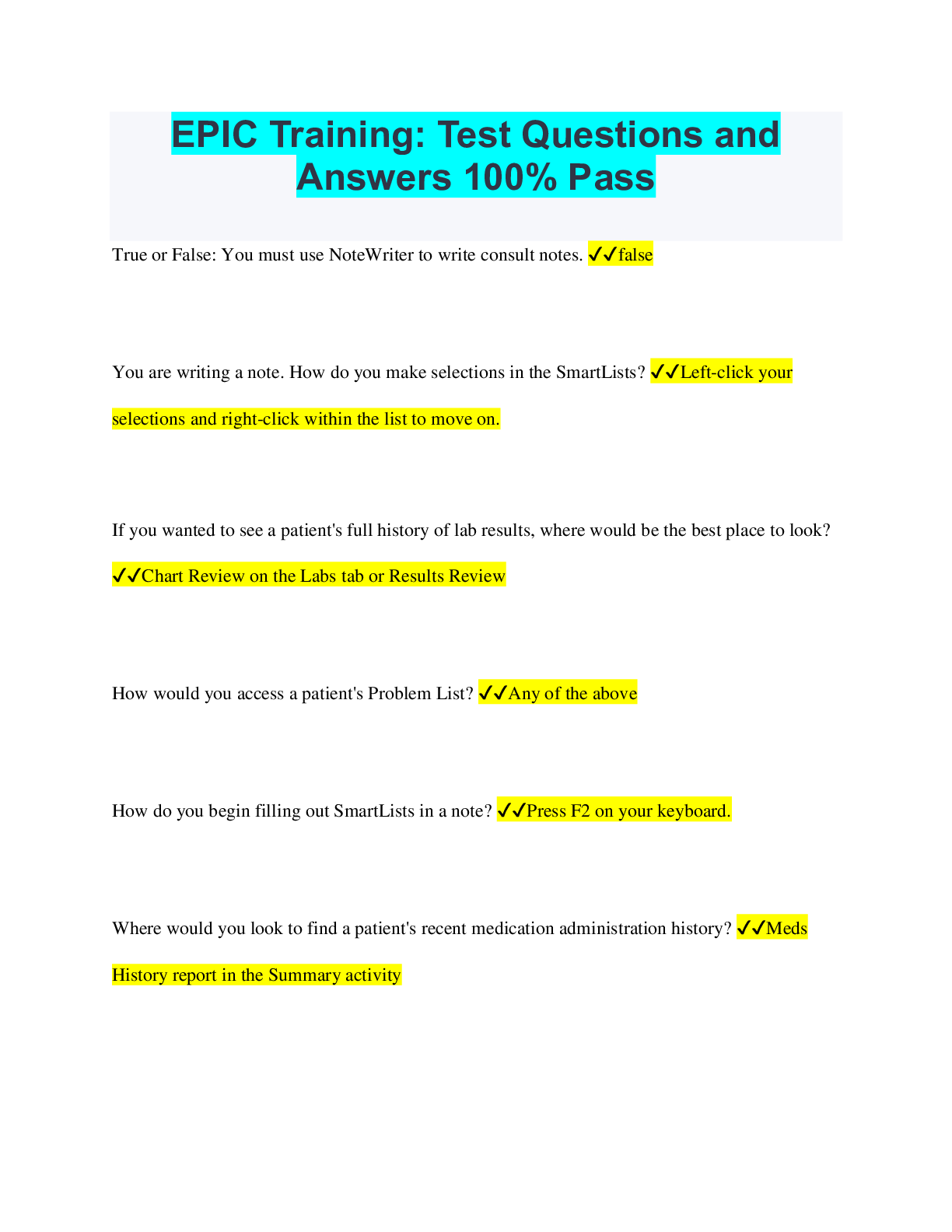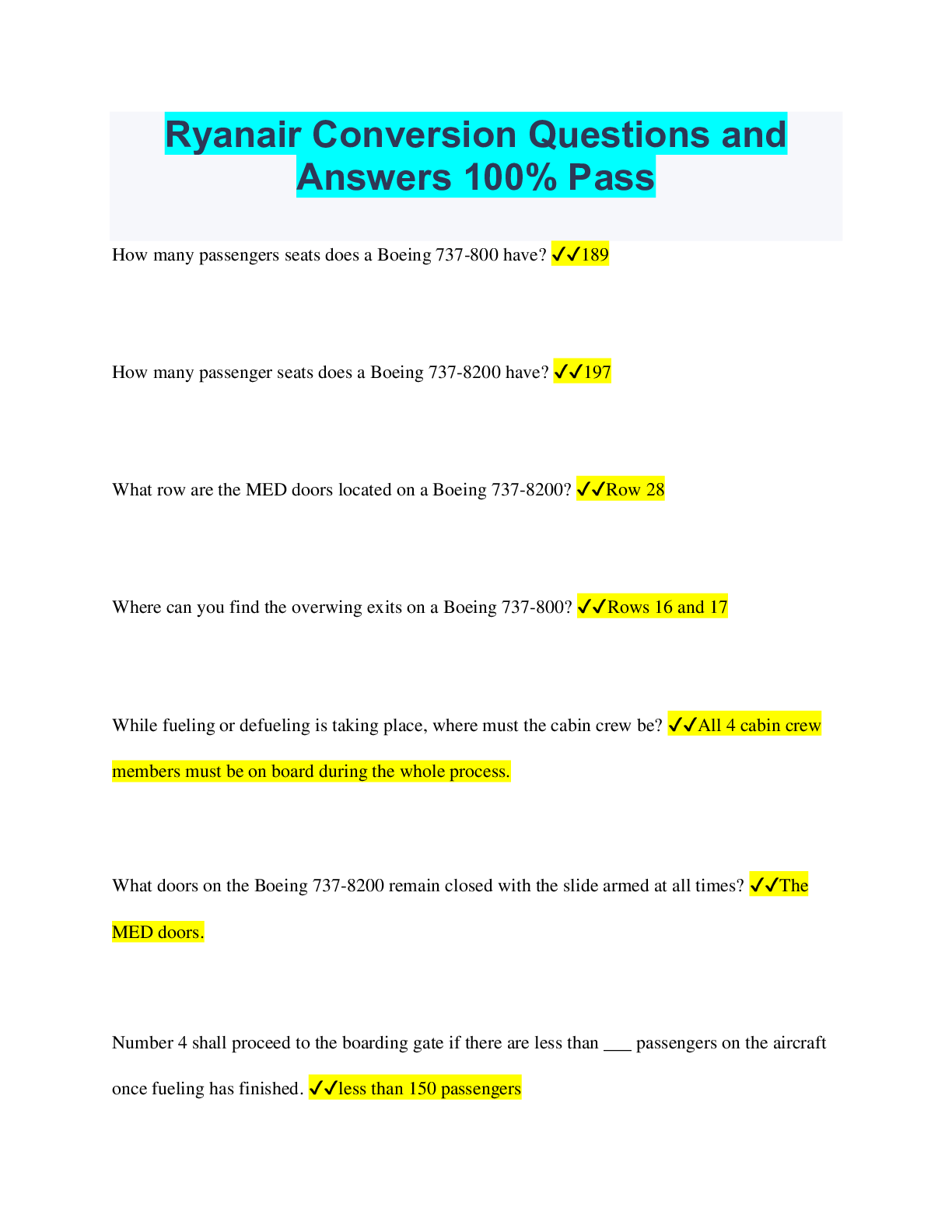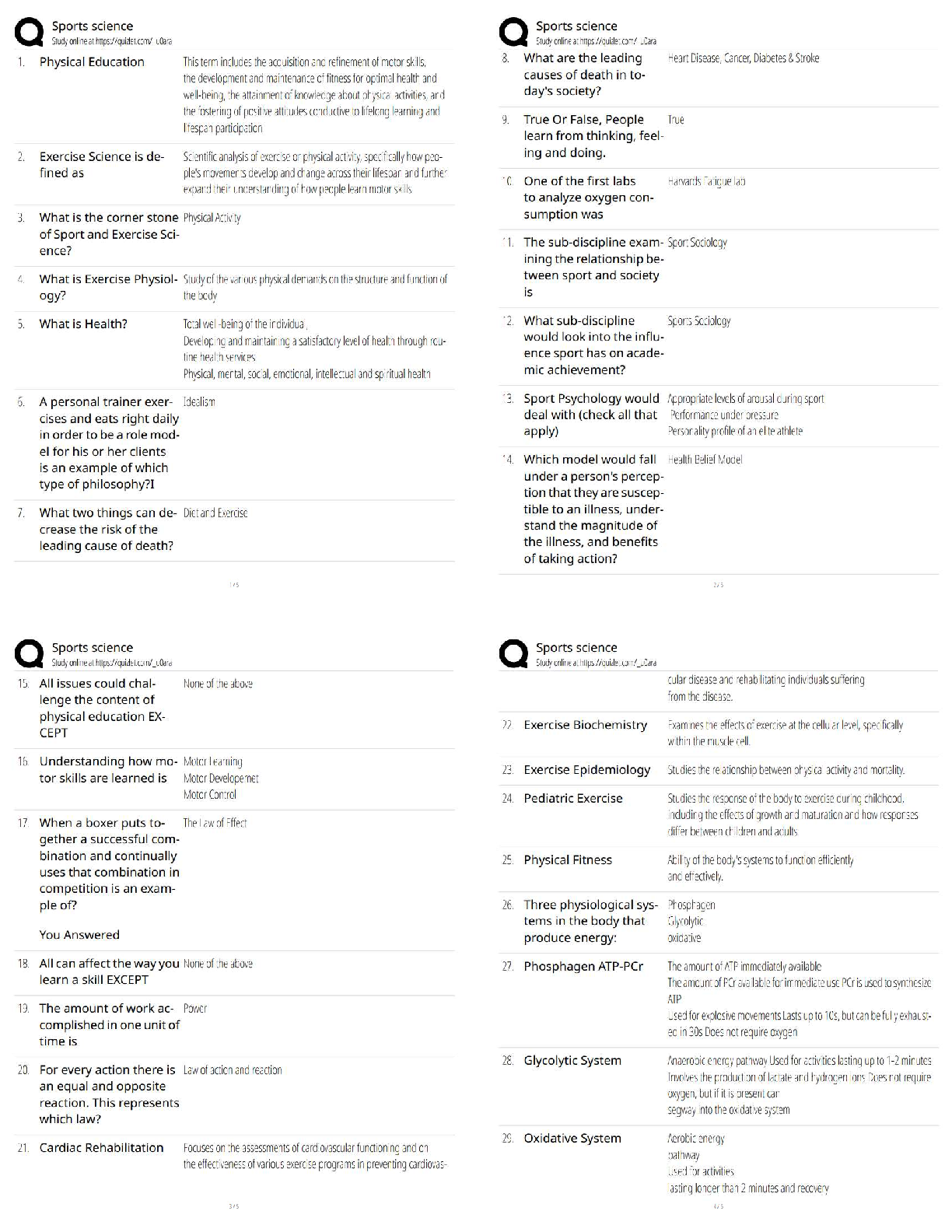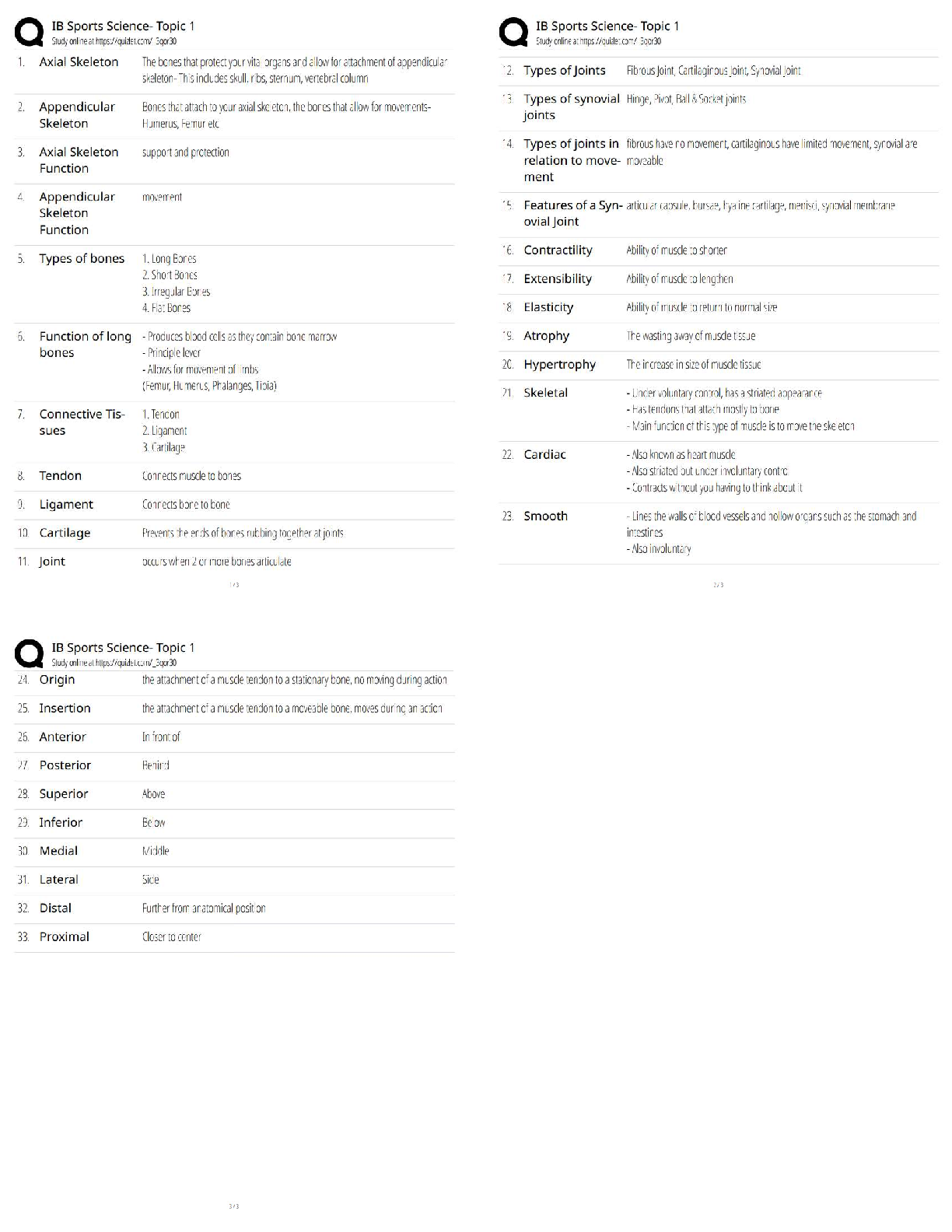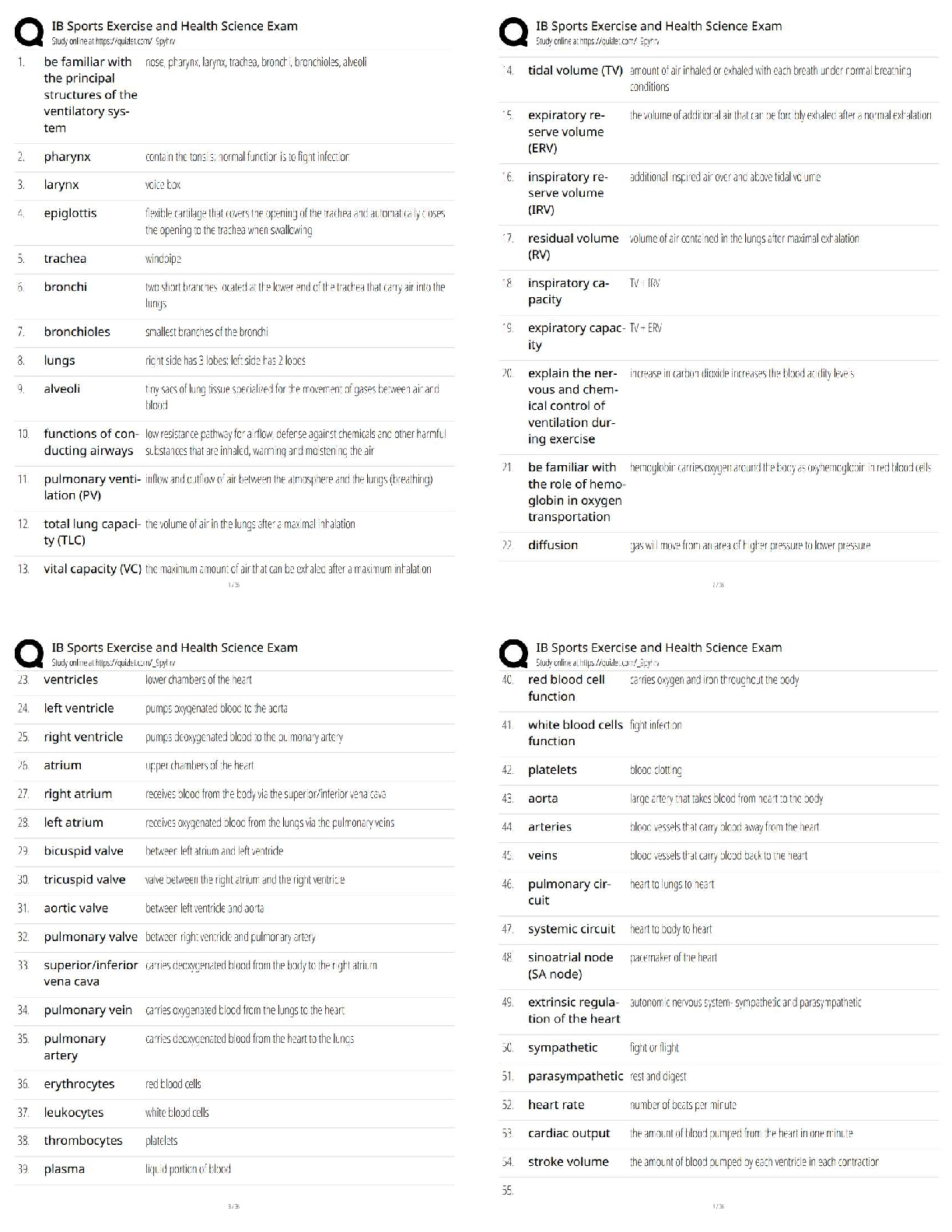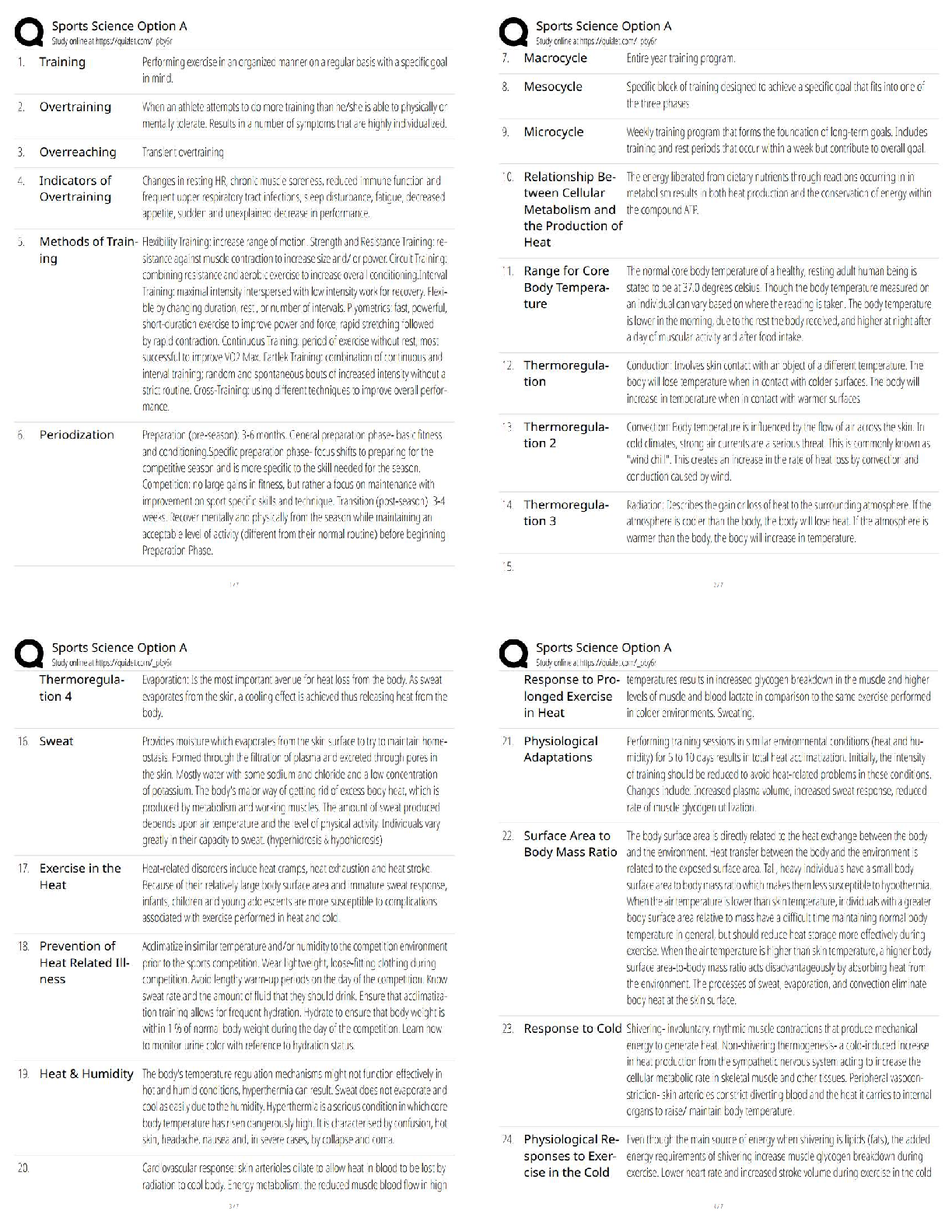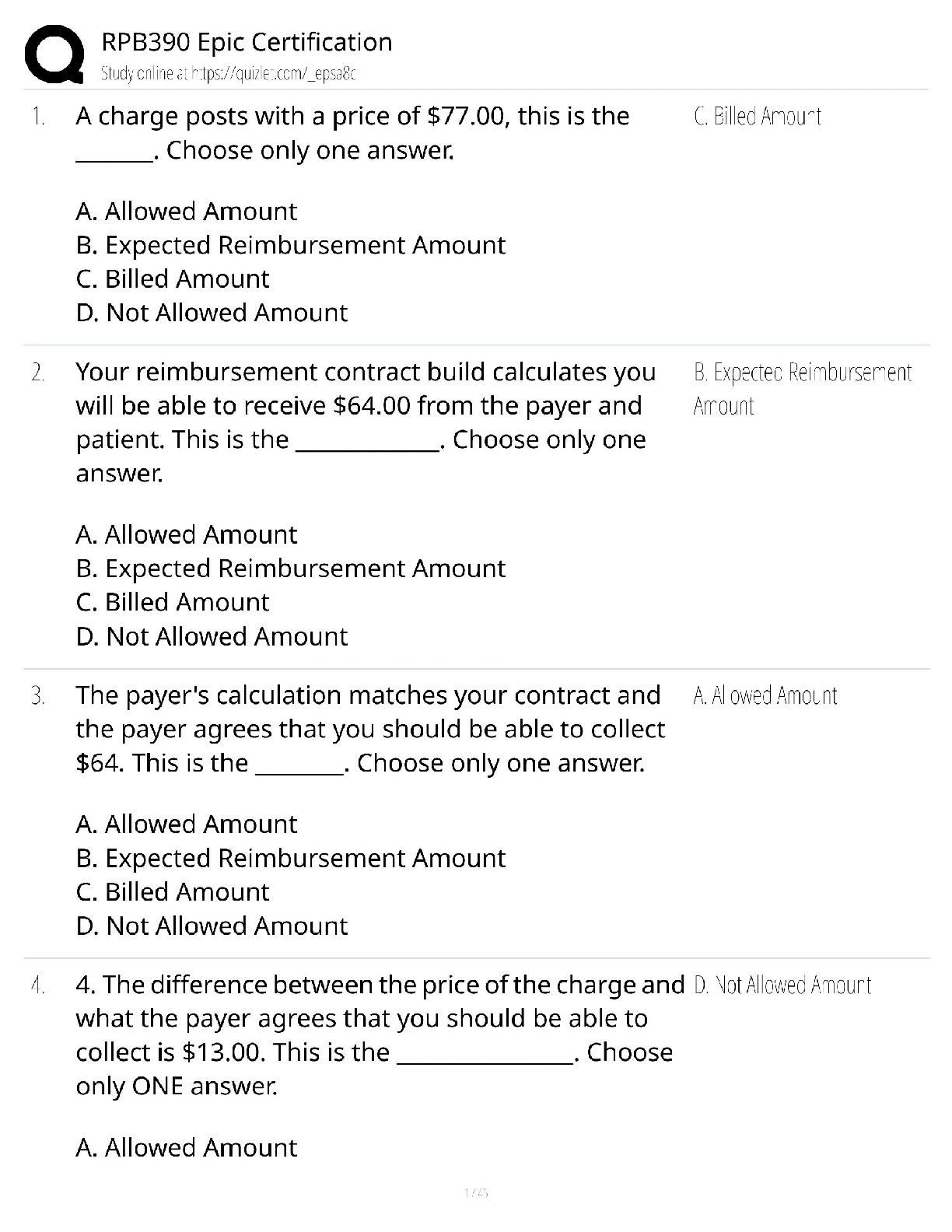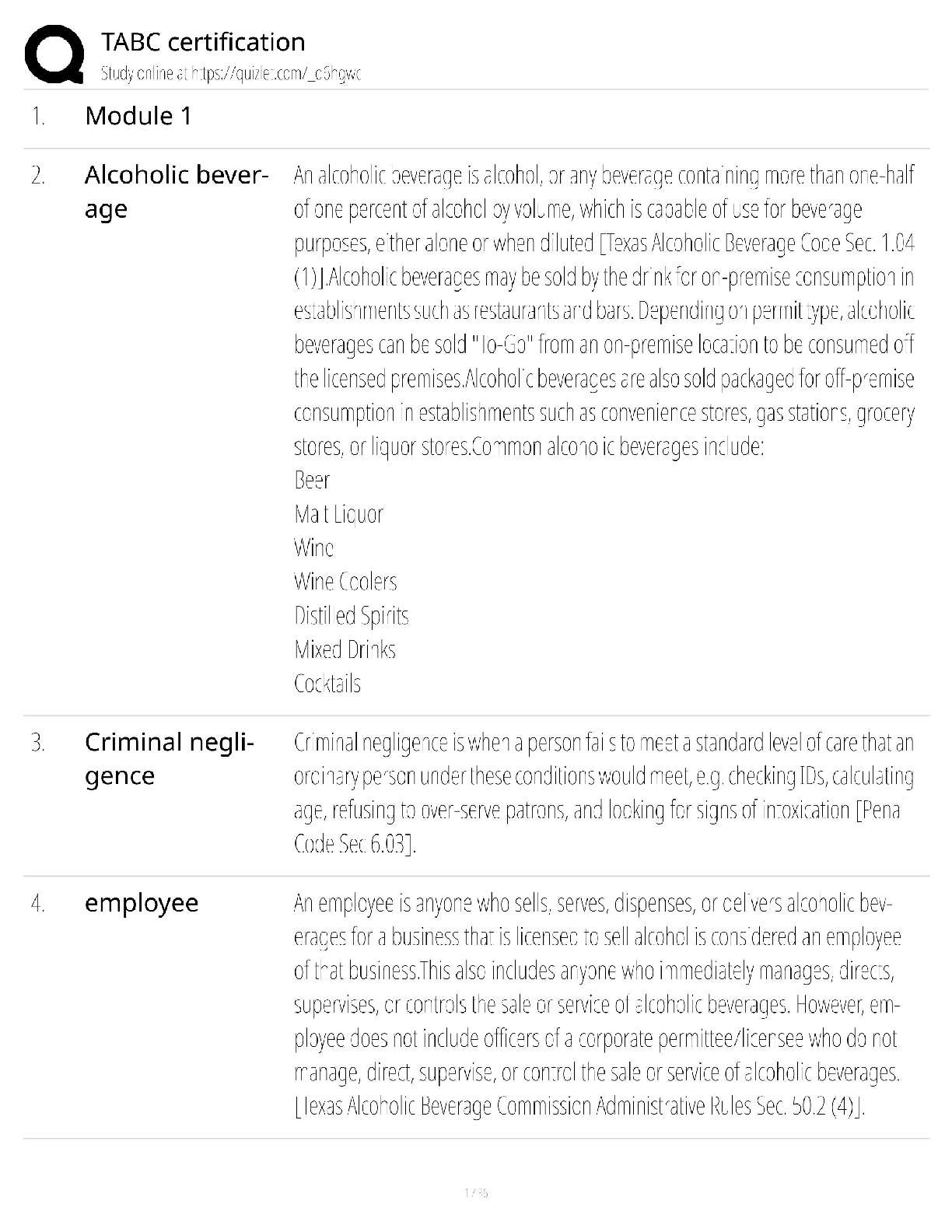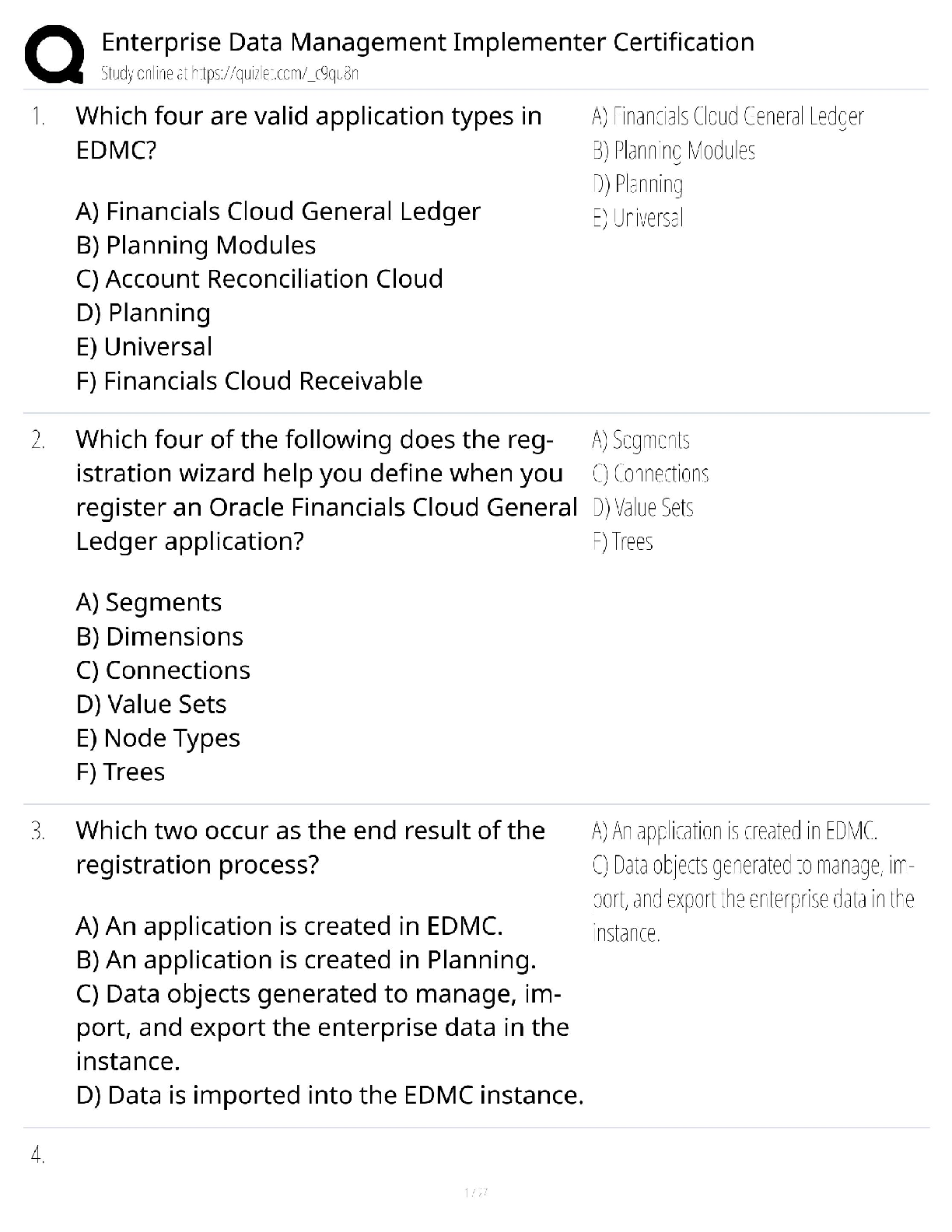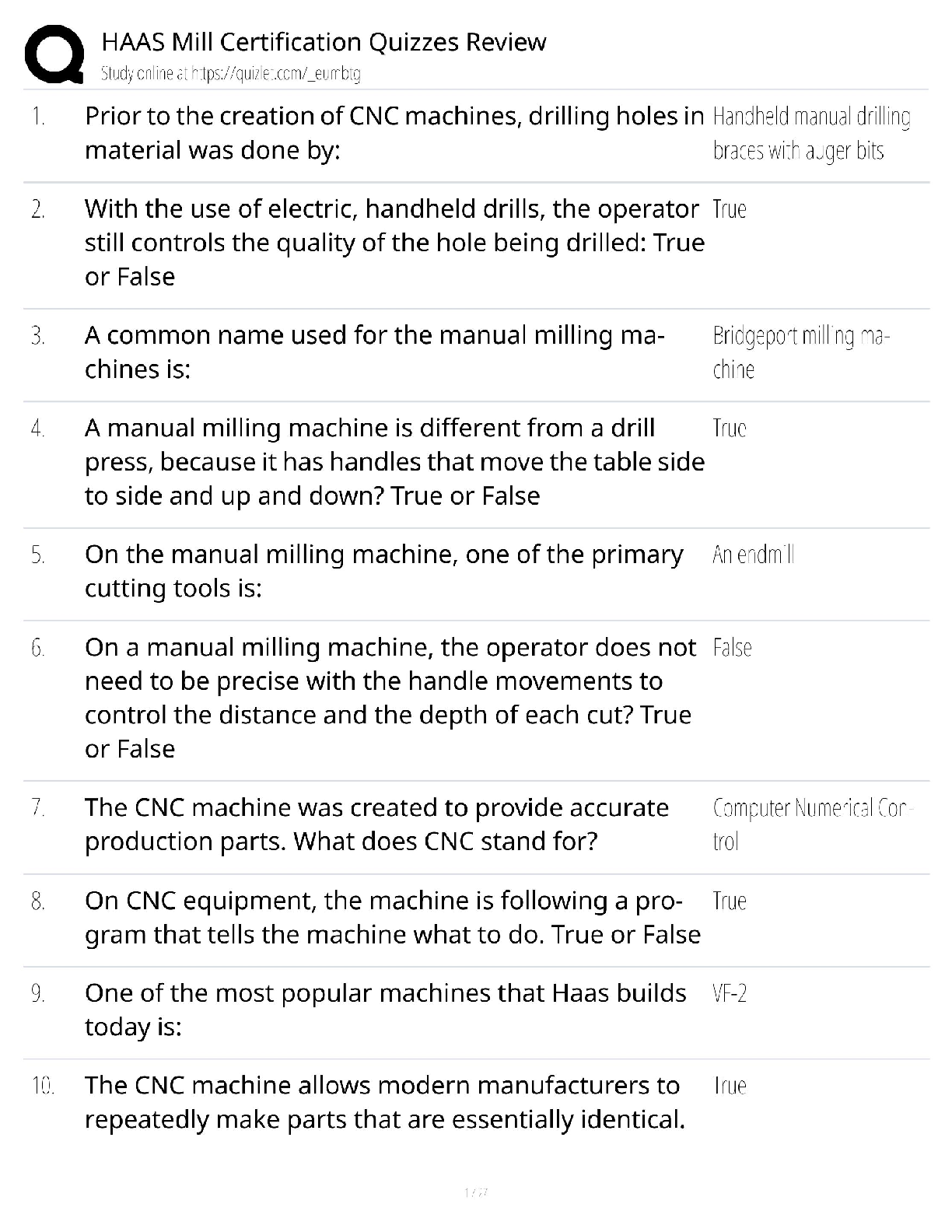Counseling > QUESTIONS & ANSWERS > Helwig NCE & CPCE Prep (HGrD) Questions and Answers 100% Pass (All)
Helwig NCE & CPCE Prep (HGrD) Questions and Answers 100% Pass
Document Content and Description Below
Helwig NCE & CPCE Prep (HGrD) Questions and Answers 100% Pass What is the definition of development? (HGrD) ✔✔Systematic changes and continuities in the individual that occurs between conceptio ... n and death. What are the three broad areas of systematic change in development? (HGrD) ✔✔Three broad areas such as physical development, cognitive development, and psychosocial development. The theories which can explain how humans grow and develop fall into these following broad categories. (HGrD) ✔✔There are the learning theories including behavioral theories, cognitive theories, psychoanalytic including the Neo-Freudian, and humanistic psychology included with self theories. Human growth and development changes can be viewed from these comparative concepts. (HGrD) ✔✔Qualitative or quantitative, continuous or discontinuous, and mechanistic or organismic. What is a qualitative view of change in human growth and development? (HGrD) ✔✔Qualitative change principle is that change occurs in structure or organization (for example, sexual development). What is quantitative view of change in human growth and development? (HGrD) ✔✔Quantitative view of change is in number, degree or frequency (content changes, for example, intellectual development) What is considered as the continuous view of change when it comes to human growth and development? (HGrD) ✔✔A continuous model states that change is sequential and cannot be separated easily (for example, personality development) What is considered in the discontinuous view of change in human growth and development? (HGrD) ✔✔The discontinuous view attributes growth and development as certain changes in abilities or behaviors that can be separated from others which delineates stages of development (for example, language development). What is the mechanistic view of change in human growth and development? (HGrD) ✔✔Mechanistic model states development and growth as those changes that are the reduction of all behavior to common elements (for example, instinctual or reflexive behavior) What is the organismic model of change in human growth and development? (HGrD) ✔✔Organismic model states that because of new stages, there is change or discontinuity; development and growth is more than just stimulus-response. The organism is involved including the use of cognition An example of this model comes from theories on moral or ethical development. What is the definition of self-concept? (HGrD) ✔✔Self-concept may be defined as your perception of your qualities, attributes, and traits. What is the theoretical self-concept at birth? (HGrD) ✔✔At birth, infants have no sense of self. In early months this quickly changes. By 24 months, what is the theoretical self-concept for most infants? (HGrD) ✔✔Most infants, by 24 months, show signs of self recognition; they are able to identify social categories they are in i.e. age and gender, "who is like me and wh [Show More]
Last updated: 3 years ago
Preview 1 out of 21 pages
.png)
Buy this document to get the full access instantly
Instant Download Access after purchase
Buy NowInstant download
We Accept:

Also available in bundle (2)
Click Below to Access Bundle(s)
.png)
CPCE Bundled Exams Questions and Answers (2022/2023) (Verified Solutions)
CPCE Bundled Exams Questions and Answers (2022/2023) (Verified Solutions)
By Nutmegs 2 years ago
$35
34

CPCE Bundled Exams With Complete Solution
CPCE Quiz Bank 2022/2023 Questions and Answers NCE and CPCE Study Guide;2022 questions and answers CPCE Exam 2022 Graded A+(Actual test) CPCE Practice Questions and Answers(2022/2023 update).Contains...
By Nutmegs 3 years ago
$18
18
Reviews( 0 )
$10.00
Can't find what you want? Try our AI powered Search
Document information
Connected school, study & course
About the document
Uploaded On
Sep 17, 2022
Number of pages
21
Written in
All
Additional information
This document has been written for:
Uploaded
Sep 17, 2022
Downloads
0
Views
155





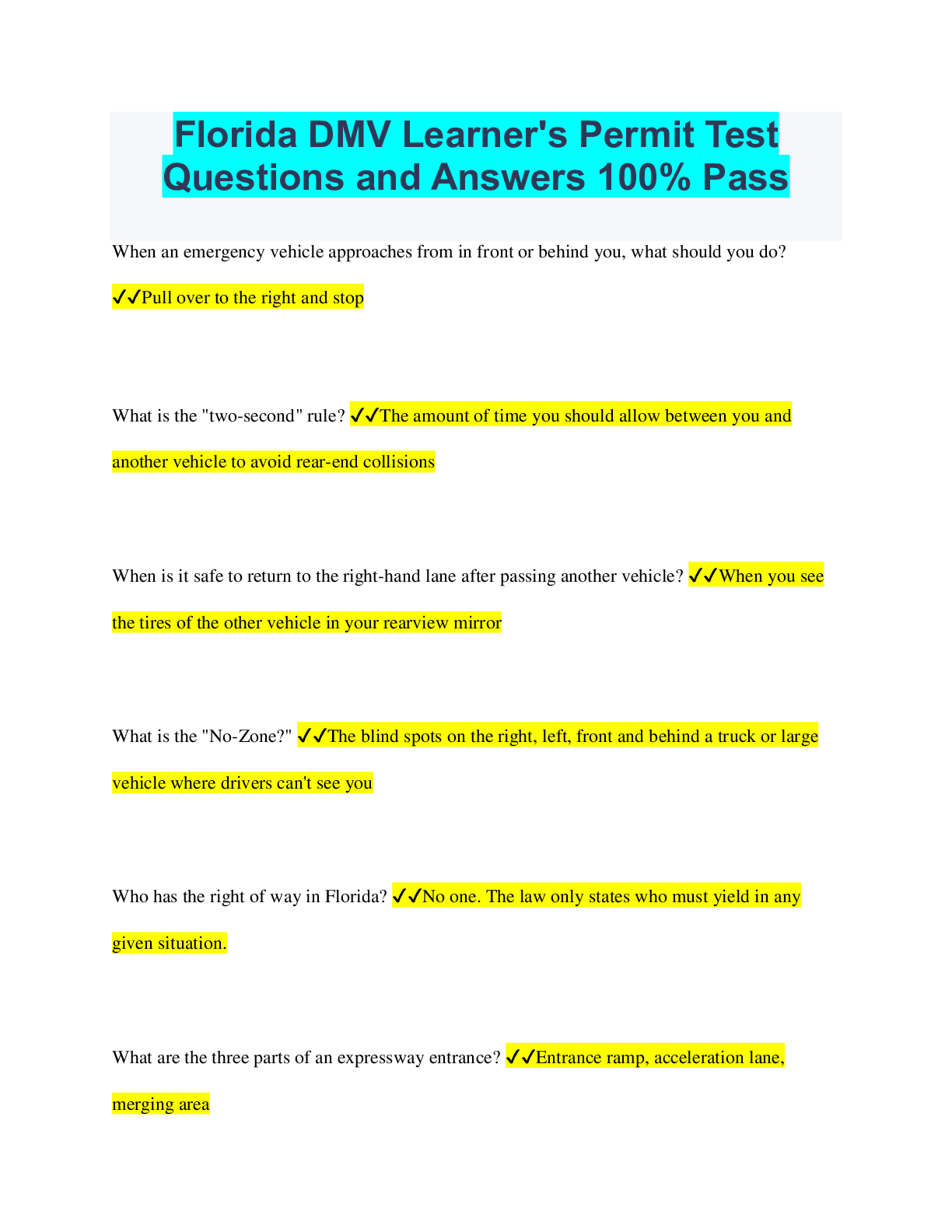
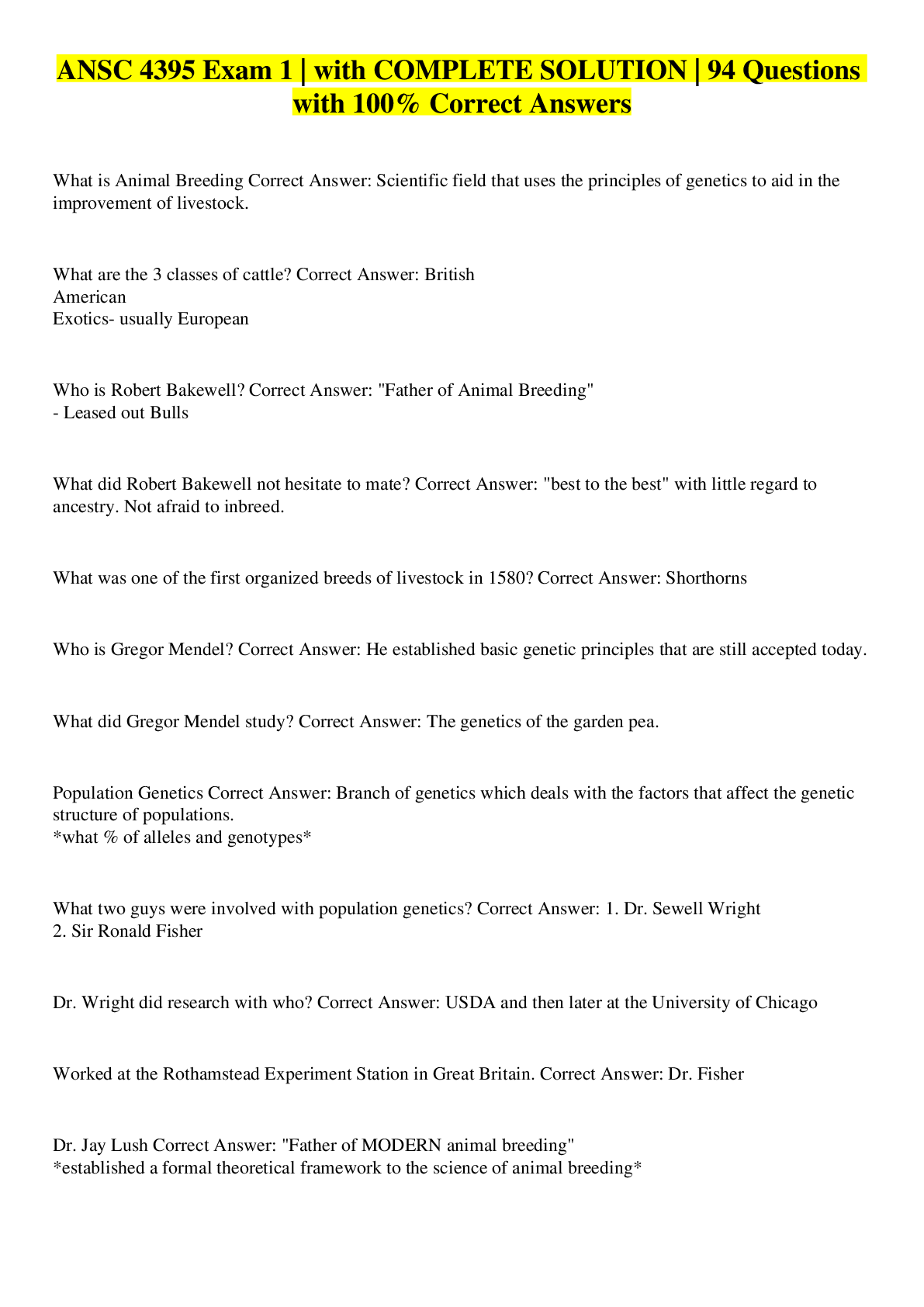

.png)

